AN URGENT APPEAL TO THE SUPREME COURT TO PROTECT ITS LAWYERS, STOP IMPUNITY, AND UPHOLD THE RULE OF LAW
WE, the undersigned lawyers[1] and officers of the Court, earnestly and urgently call the attention of the Court to the deeply disturbing action widely reported in the media that the Philippine National Police has asked trial courts to compile a list of “lawyers who represents [sic] Communist Terrorist Group (CTG) personalities.” Inquiries with other lawyers and court officials across the country by curious and concerned lawyers confirmed that similar letters were received by them. That the top leadership has subsequently denied any such policy does not help as the damage has been done.
We are deeply troubled and concerned by this brazen and outright attempt to curtail legal rights and civil liberties, to endanger the lives of, and perhaps deliberately target, lawyers carrying out their legal duties, and this palpable act of intimidation meant to deprive alleged “CTG personalities” of their constitutional rights to counsel. Several of our professional brethren have already been killed for no clear reason other than that they represented accused who were alleged to be members of communist groups or allied organizations. This police action is clearly meant to (a) intimidate lawyers from representing persons that the government has tagged as alleged members of CTGs even without benefit of trial, (b) indirectly deprive persons accused as “CTG personalities” of their right to counsel by frightening lawyers from being associated with them, even if they do so as officers of the court, and (c) provide the PNP with another “list” of “personalities” against whom they may decide to take other actions in the future.
This police action is also grossly inconsistent with paragraphs 16 and 18 of the Basic Principles on the Role of Lawyers,[2] to wit:
16. Governments shall ensure that lawyers (a) are able to perform all of their professional functions without intimidation, hindrance, harassment or improper interference; (b) are able to travel and to consult with their clients freely both within their own country and abroad; and (c) shall not suffer, or be threatened with, prosecution or administrative, economic or other sanctions for any action taken in accordance with recognized professional duties, standards and ethics.
18. Lawyers shall not be identified with their clients or their clients’ causes as a result of discharging their functions.
More than the shamelessness of this incredibly blatant attempt to make the courts complicit in the potential violation of constitutional rights of litigants and the undermining of the independence of the judiciary, this police action is a patent demonstration of impunity. It should not be left to stand. Never in the history of our country has there ever been such an open and flagrant attempt to cow the legal community into shirking their sworn duties as lawyers and officers of the court through an act of discrimination and inquisition clearly targeting lawyers for representing a particular category of accused clients.
Mr. Chief Justice and Associate Justices of the Court, as the leaders of the legal profession in the Philippines, we ask that the Court intervene motu proprio and urgently. Protect the officers of the Court. Ensure the independence of the Judiciary. Uphold the role of lawyers in the administration of justice and the defense of the rule of law.
May it please the Court, the exclusive power to promulgate rules for the protection and enforcement of constitutional rights[3] is vested with the Court. So too, the power of administrative supervision over all courts and personnel thereof.[4] These powers may be exercised motu proprio — and in these urgent circumstances, must be so exercised — by requiring an official explanation from the PNP leadership, at the first instance, and commencing proceedings perhaps towards ensuring that such instances never, ever happen again.
Download the Full Statement Here.
[1] The initiative was started by the faculty members of the University of the Philippines College of Law and later extended to include members of other law faculties as well as interested lawyers.
[2] Adopted by the Eighth United Nations Congress on the Prevention of Crime and the Treatment of Offenders, Havana, Cuba, 27 August to 7 September 1990
[3] Const. (1987), art. VIII, sec. 5(5)
[4] Const. (1987), art. VIII, sec. 6

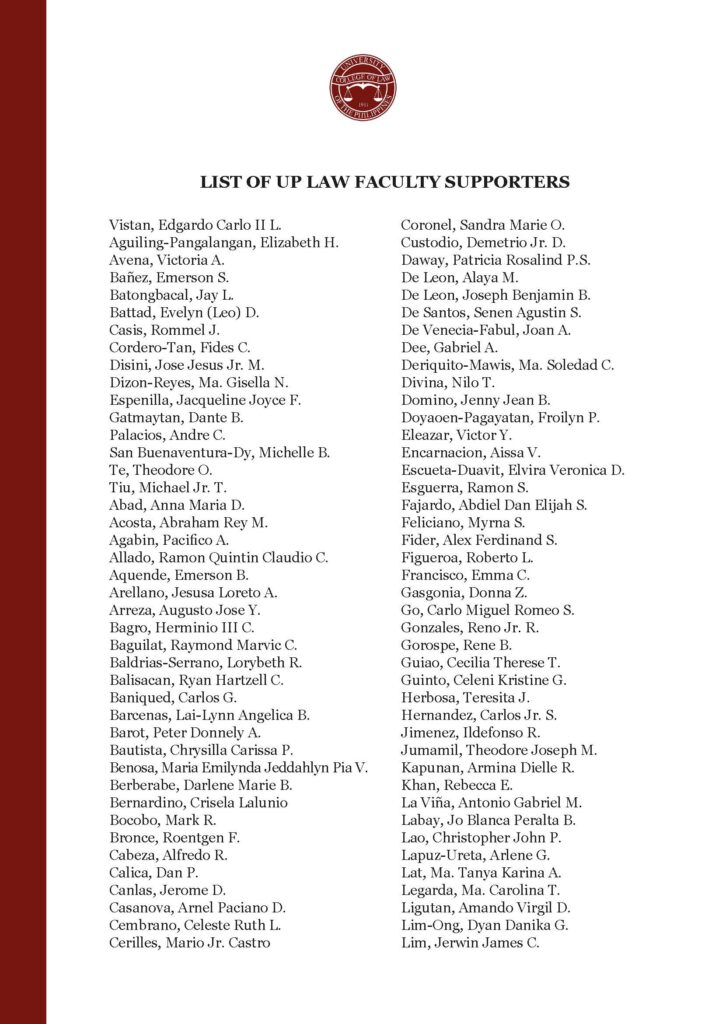
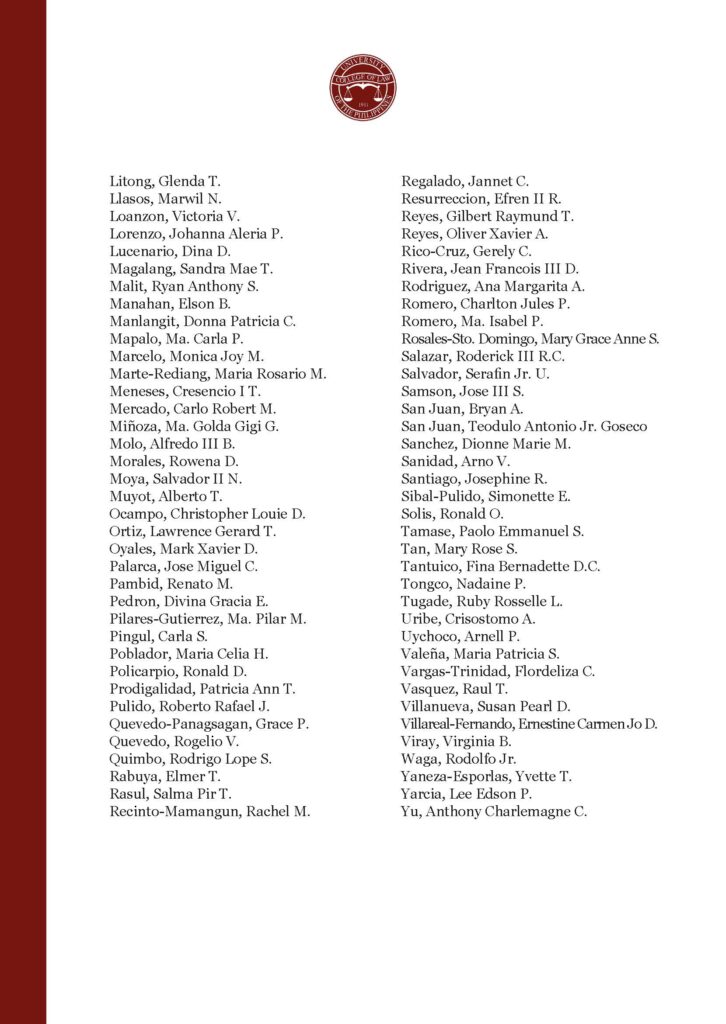
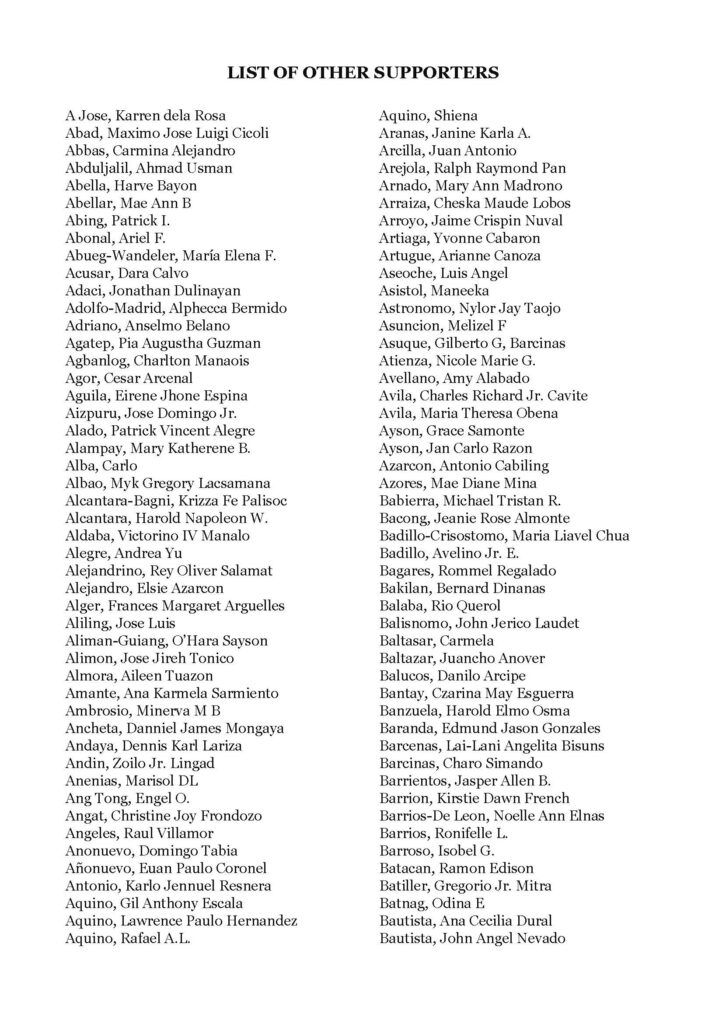
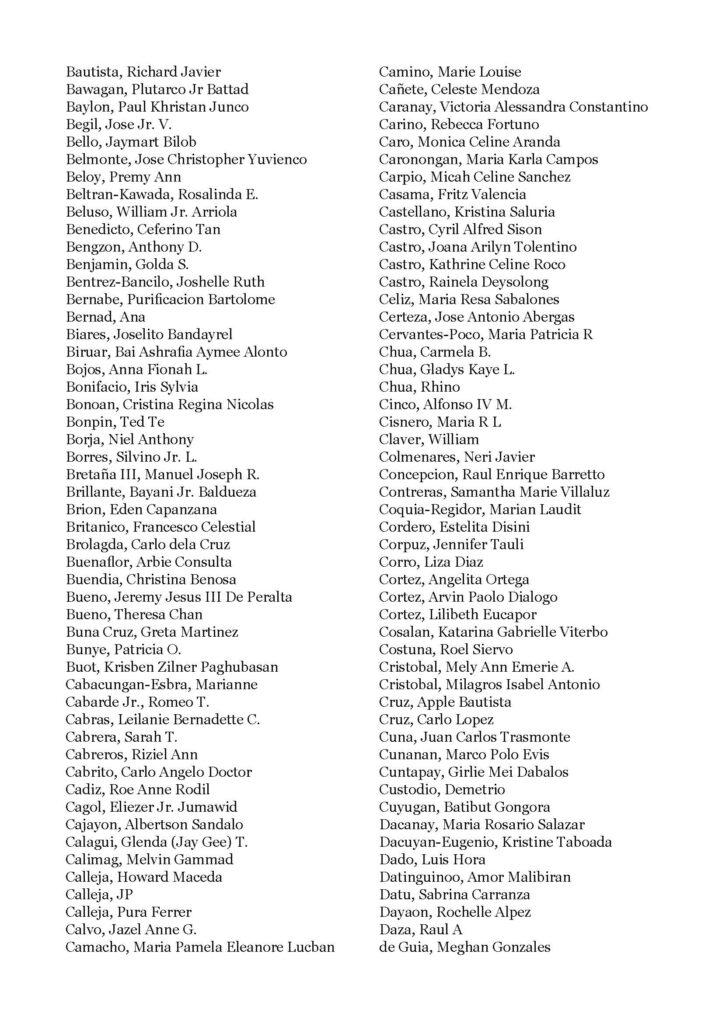
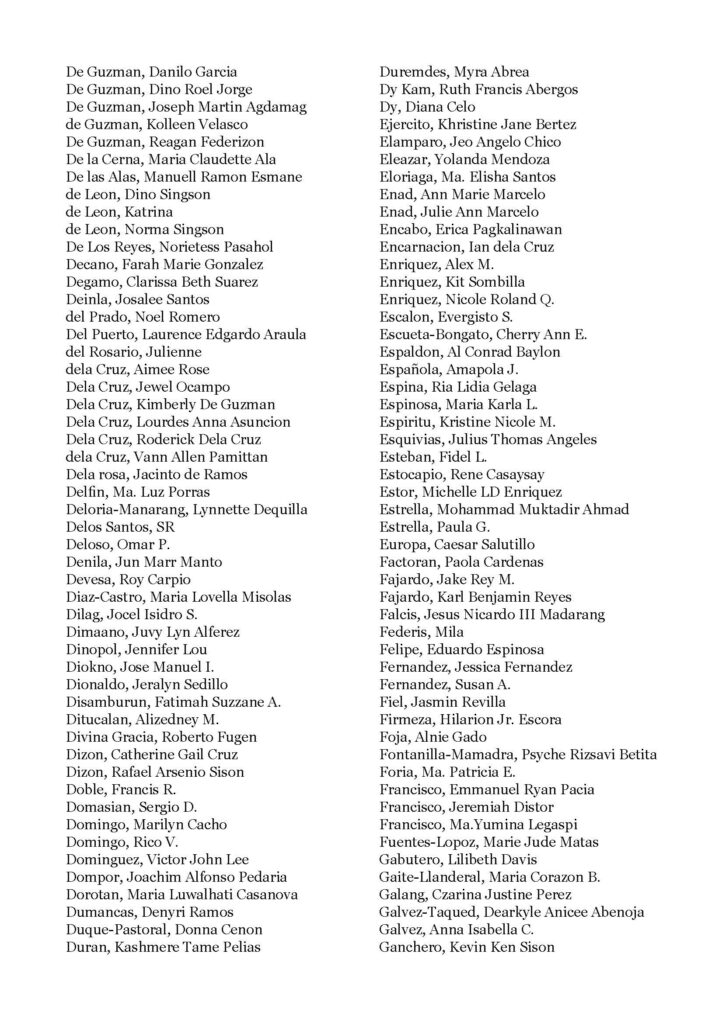
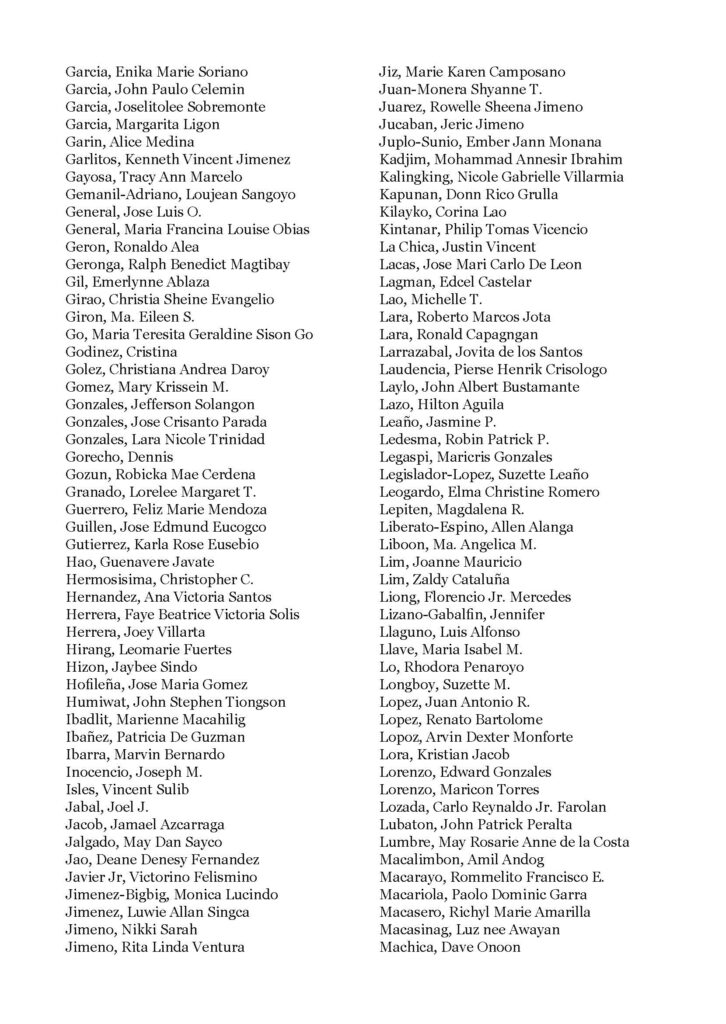
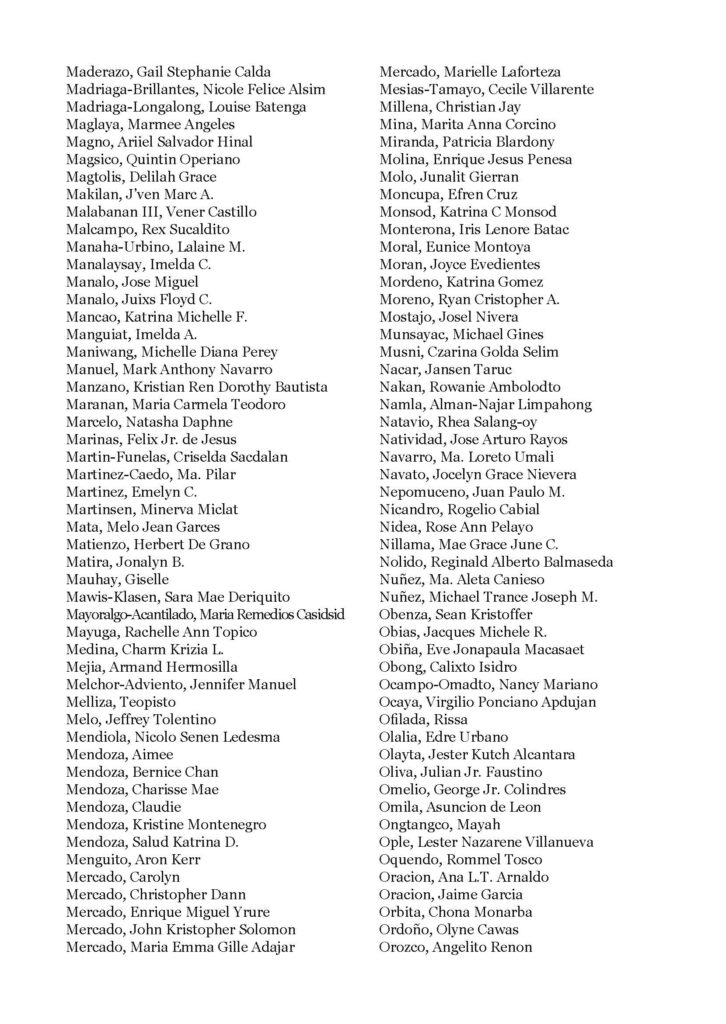
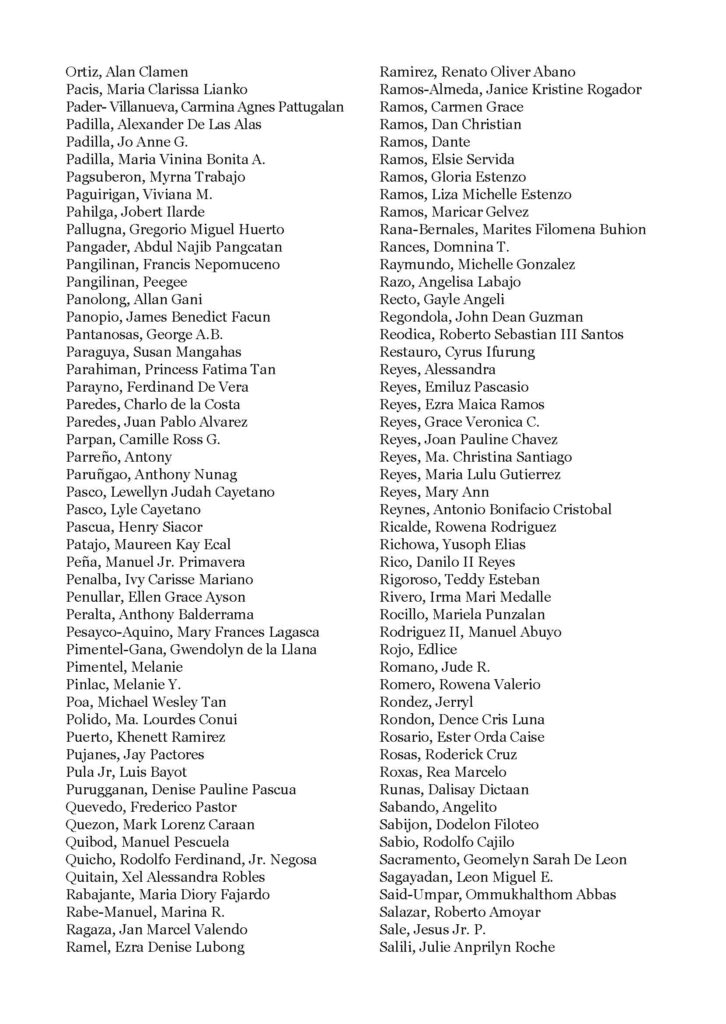
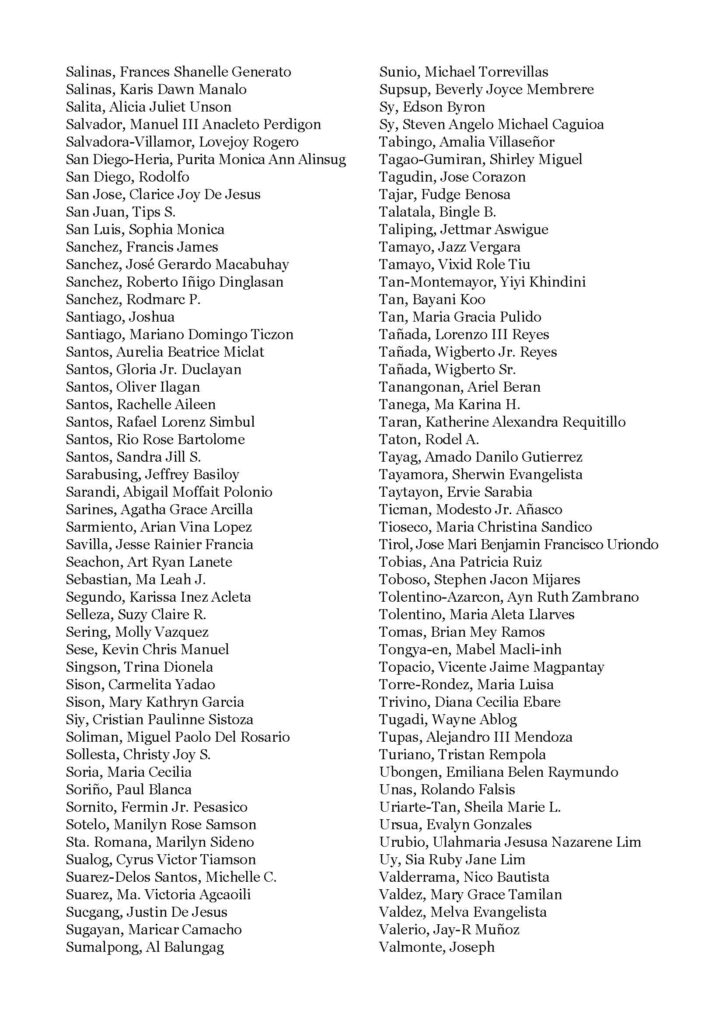
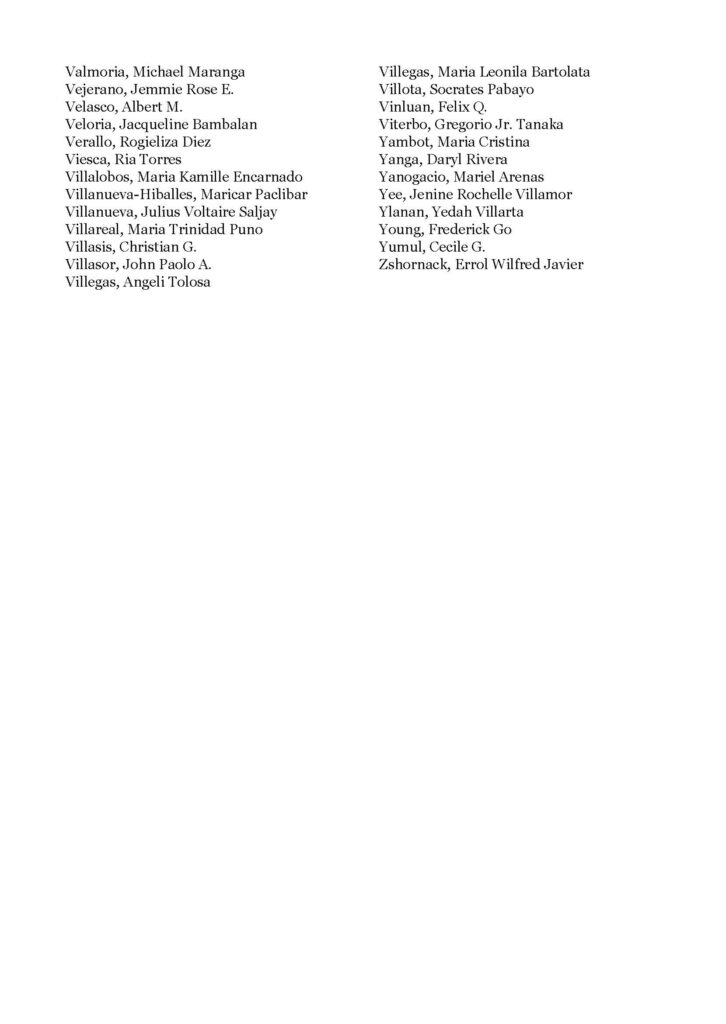






































































































 on the upper right corner to select a video.
on the upper right corner to select a video.